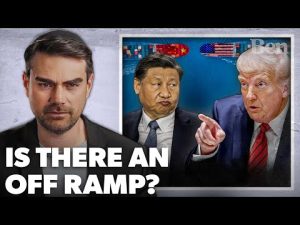The saga in Moscow continues as Special Envoy Steve Witkoff greets President Vladimir Putin today amid rising tensions between Russia and Ukraine. With President Trump taking a firm stance against recent Russian attacks on Kyiv, the spotlight is on whether his diplomatic envoy can actually make peace happen. Amidst swirling doubts, the President insisted on his commitment to saving lives, particularly of the young soldiers caught in the conflict. Meanwhile, one must admit that the truth often has two sides, and President Trump’s political tennis match between Russia and Ukraine has more spin than a professional serve.
President Trump’s approach, it seems, is not without a sense of fiscal urgency. He has described the money spent on the war as an outlandish expense and is pushing for an end to what he calls a “killing field.” Figures suggest a staggering loss of life, with around 5,000 soldiers said to be perishing weekly. The President is adamant about halting this humanitarian catastrophe. Yet some skeptics might argue that his tweets about not being happy with Russian strikes on Kyiv sound as firm as a forgotten New Year’s resolution. But at the core, Trump appears to be trying, as noted by former Deputy National Security Adviser Victoria Coats during a televised discussion. She highlighted the astronomical sums dumped into the war and the urgency to conclude it.
While Witkoff is in Moscow trying to iron out the wrinkles with Putin, President Trump, from his own podium, beams about the resurgence of dialogue with Russia. Until now, he argues, there was a communication blackout during the alleged sluggish Biden administration—a period when, apparently, chat lines to the Kremlin felt as available as phone booths today. Now, with renewed talks on the table, Trump believes it is either make-or-break time. His effort, mentioned by Coats, should clarify to all sides that there won’t be bouquets waiting for new bouts of military conflict. If proceedings come to a stalemate, a notably displeased Trump might not spell sunny outcomes for any involved parties.
Elsewhere in his diplomatic grab-bag, President Trump turns his gaze towards Iran, asserting earnest negotiations on the horizon. Without missing a beat, there’s excited chatter about serious talks taking place, aiming to resolve issues in ways that allegedly previous administrations neglected. Some folks might chuckle at the optimism, but according to Trump, things are on the right track. The negotiations might lead to what you could call a “good decision” that saves lives, and who isn’t rooting for that?
The ongoing dialogue about Iran’s nuclear ambitions adds a layer of complexity. The dilemma unfolds with Senator Marco Rubio’s suggestion that the U.S. might tolerate Iran retaining some nuclear capabilities, provided they drop the DIY approach to enriching uranium domestically. It’s a move that sounds logical; after all, if they need a nuclear program for peace, why the insistence on homegrown enrichment? Communication with Iran has been reopened, marking a stark contrast from prior approaches that apparently aimed less for diplomacy and more for distractions. Should Iran accept rational conditions akin to those established elsewhere, it could be a diplomatic win-win, leaving everyone with at least one less saber to rattle.







